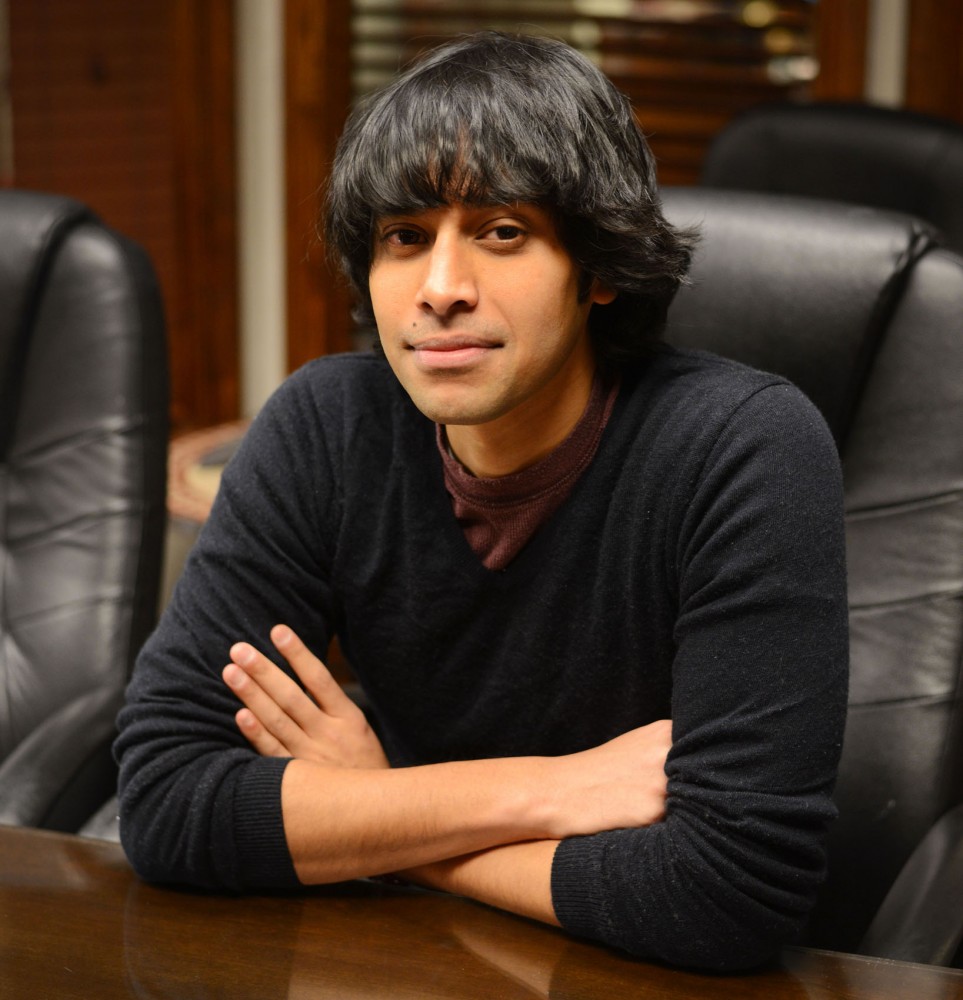Less than two months ago, Shezanne Cassim was sitting in a prison cell in the Abu Dhabi desert.
Cassim, a University of Minnesota alumnus, spent nine months locked up in the United Arab Emirates for a crime he says he didn’t know he committed.
More than a year ago, Cassim and others made a YouTube parody video depicting a training school for gangsters in the UAE. Cassim said that police later told him he was threatening national security.
Six months after posting the video, Cassim said, he was called into the police department for “a small problem.”
“They noticed I looked apprehensive, so they told me to relax,” he said. “They said, ‘You didn’t kill anybody; just relax.’”
Once police showed Cassim the YouTube video, they interrogated him. He said they asked him questions like: “Who paid you to make this?” and “How much?”
Then he was arrested.
His brother, Shervon Cassim, said their family found out almost immediately through their friends in the UAE.
“It was a complete shock,” he said.
David Wippman, dean of the University’s Law School, said some governments have laws that prohibit challenges to the government but that he doesn’t understand how Cassim’s video was a threat.
“I suspect the government views the Internet as a forum for protest and for organizing people in ways that perhaps it wants to keep under certain limits,” he said. “But I don’t really understand why this video was being threatening.”
Cassim was held for five months before he was formally sentenced to a year in prison, he said.
Shervon Cassim said Shezanne Cassim could occasionally make phone calls and get visitors while in prison — one visitor was Shervon.
But to this day, neither Shezanne Cassim nor his family could say which of the UAE’s laws he broke.
“Even now, I’m not entirely sure of what I was accused of,” he said.
University media ethics and law professor Jane Kirtley said though it’s legal to post a video online that criticizes the government in the United States, people often don’t consider the consequences when they go abroad.
“The part that I think people are sometimes not aware of is that if they’re publishing material online … other countries may claim that they have jurisdiction over that speech because they can be accessed from that country,” she said.
Cassim said though his release from prison was the result of many things, the media and social media played a major role.
“When the world found out, it was a major turning point for my case,” he said.
In the months he spent in prison, there was an outcry from social media for his release. #FreeShez trended on Twitter, and some celebrities on FunnyOrDie.com made a video calling for his return home.
When Cassim was released, his brother said, their family was relieved.
“The same way I hid some of the things I was going through while inside, [my family] hid what they were going through back home,” Cassim said.
Cassim said he’s looking into taking legal action but hasn’t yet decided whether he will.
Wippman said there are a few approaches he could take with a lawsuit, but it would be difficult.
“In this country, it would be difficult. … I would assume that he would not fare well in the courts in the UAE,” he said. “So it would be challenging to bring any kind of case.”
Kirtley said that Cassim could possibly take his case to an international human rights court. But even if he won a case at the international level, she’s not sure the UAE’s government would comply.
For now, Cassim said he’s also considering law school and would like to write a book.
“Maybe film school, because I actually had a lot of fun making the video,” he said.
Cassim made a lot of friends and got good grades at the University, his brother said.
Cassim also worked as a community adviser in Pioneer Hall. He said his time at the University taught him to embrace challenges in the real world.
“I experienced a lot of personal growth during that time,” he said. “After eating prison food, I’d never complain about eating [residence] hall food — I miss the stuff.”
Before coming to the University, Cassim lived in the UAE until age 16, when he moved to the U.S. He graduated from college in 2006, and then went back to the UAE for work.
For Cassim, one of the most painful parts of his imprisonment was feeling like the country where he lived for so long could turn on him.
“I have a 28-year relationship with that place,” he said. “Being chucked into a prison and shackled … the word is betrayal. I felt betrayed.”








